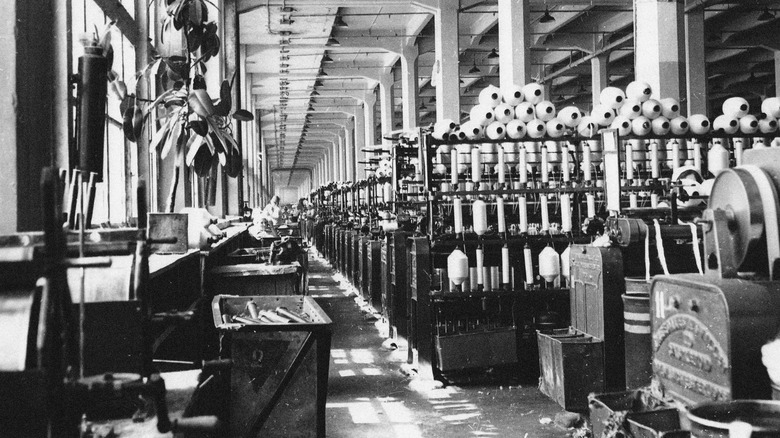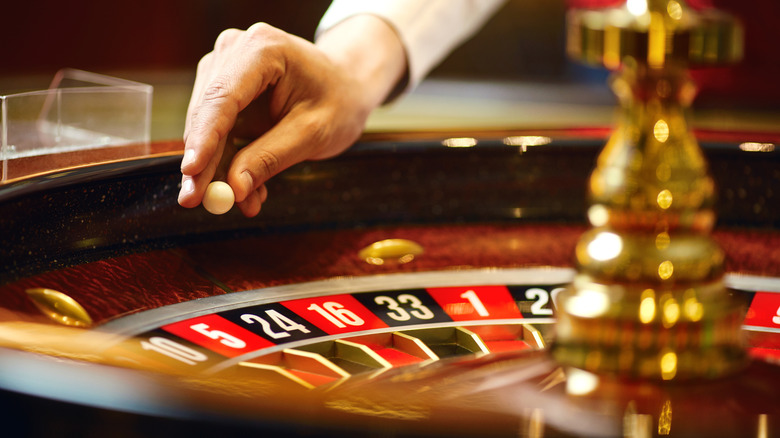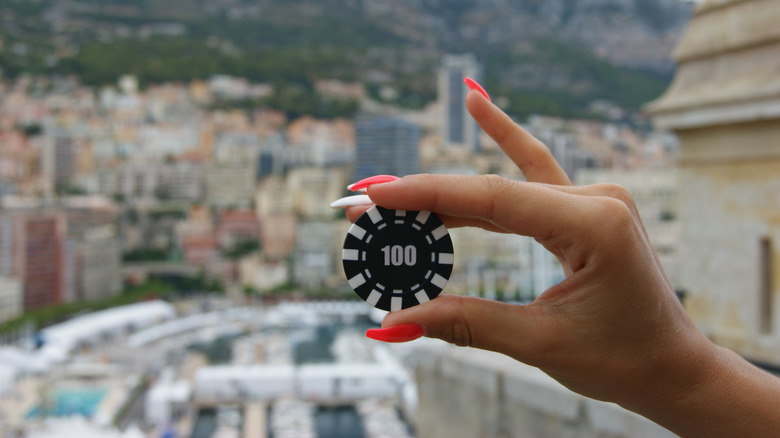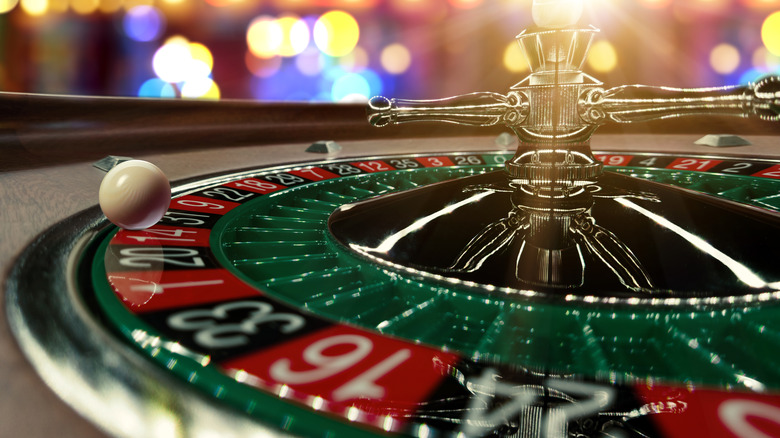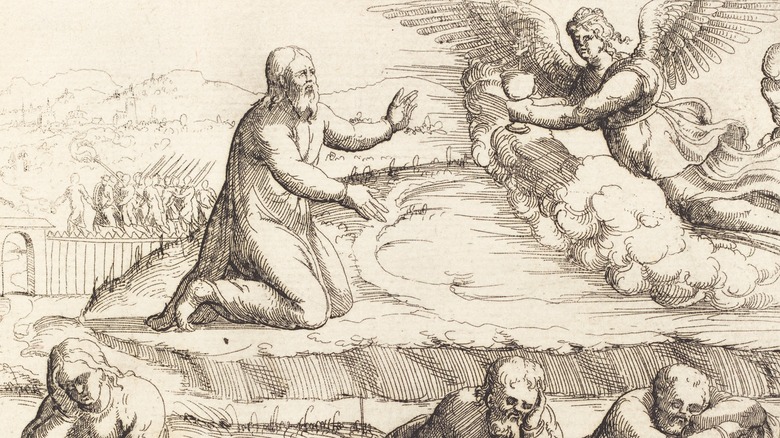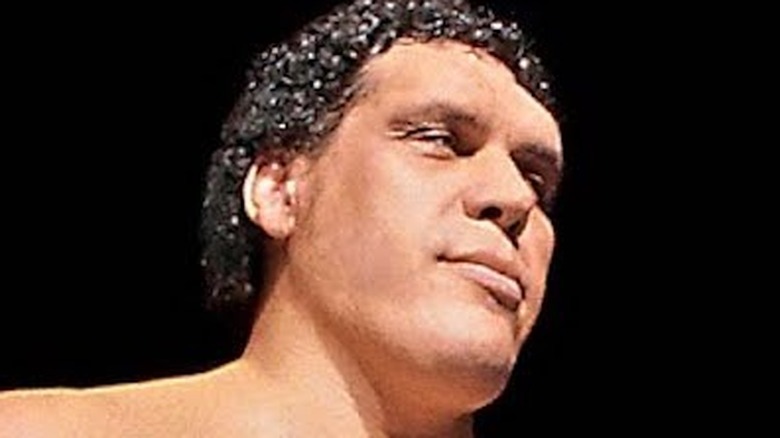
How A Broke Businessman Took The Monte Carlo Casino For Millions Using Math
For as long as gambling has been a thing, earnest bettors have been looking for any kind of edge that will give them an advantage — over other players or over the “house.” Some have turned to outright cheating, a process that will at the very least get you banned from the casino, and could very well result in time behind bars.
Others have turned to using their innate skills to find an edge. Indeed, so-called “card counting” involves keeping track of the cards dealt in a game of blackjack in your head, and using that knowledge to place bets likely to net you better money. According to the Detroit Free Press, it’s perfectly legal, but if a casino believes you’re doing it, they’re well within their rights to ban you.
A century and a half ago, one man used his own innate skills to attain a gambling edge and took his prowess to Europe’s biggest and grandest casino: the one at Monte Carlo. Using his expertise, he managed to relieve the house of millions before the managers finally caught on.
Joseph jagger was a broke mill engineer
In the early 1880s, Joseph Jagger was working as an engineer in the textile industry. According to his descendant Anne Fletcher, writing in The Daily Mail, Jagger was born into poverty and not formally educated. Nevertheless, he worked his way up from penury, learned to read and write, and developed a knack for understanding the finer points of engineering — a skill set he used to improve his lot in life.
Unfortunately, a poorly-timed choice to expand into the cotton business cost Jagger dearly. After moving to a new town and investing in cotton manufacturing, the market took a hit, and Jagger was forced into bankruptcy. At the time, he had a wife and four children to support.
In his years working in textiles, Jagger had noticed that the spinning wheels involved in the manufacturing process didn’t always spin with perfect balance. He then wondered if that inherent imperfection could have ramifications for another industry that relied on spinning wheels: the casino industry. In particular, the roulette wheels.
Jagger found a flaw in the Monte Carlo Casino's roulette wheels
With the very real possibility that he and his family would be sent to the workhouse, Fletcher said the miller decided to take a scouting trip to Monaco. Per The Daily Mail, he planned to determine if imperfections in the roulette wheels did, in fact, result in some numbers coming up more frequently than could be accounted for by random chance.
It would be an expensive trip: Jagger would need assistants to write down numbers with him (he wound up taking along his son and nephew); they’d need to travel from England to Monaco; they would need room and board once there. Fletcher speculates that the entire venture probably cost him a fifth of his annual income, and that he probably saved for years to afford it.
The men roomed in nearby Nice, traveling to the Beaux-Arts Casino, making their observations, and returning each night to Nice to talk things over. And what they learned, according to Roulette Star, was that certain numbers, on one machine, did in fact come up more often than could be accounted for by random chance. Indeed, history even recorded those numbers for us: 7, 8, 9, 17, 18, 19, 22, 28, and 29.
Jagger and his team broke the bank
In the casino industry, there’s a term for when a gambler wins more money than the table normally keeps at its reserve: breaking the bank, according to Soft Gamings. Colloquially, it can refer to a gambler taking a big payout. But in its original use, it meant that the casino had to temporarily close a machine while an employee went to a vault to retrieve the money necessary to pay the winning player.
And Jagger broke the bank.
Betting heavily on the numbers that came up unnaturally frequently at the biased roulette wheel, Jagger took the Monte Carlo Casino for millions over several days, per Roulette Star. Exactly how much is difficult to say; according to his descendant via The Daily Mail, he took the casino for the modern equivalent of almost £7.5 million (about $10 million). Roulette Star puts Jagger’s winnings in the range of £3,000,000 in modern money, or about $4 million.
The casino fought back, and won (kind of)
Casinos do not like losing money, and when officials realized that Jagger was taking them for millions without visibly cheating, the managers decided to trick their biggest winner. Specifically, when Jagger was away, employees switched the positions of the various wheels, Roulette Star reports. Jagger, unaware, promptly lost his shirt, although he soon caught on and was able to find his favorite machine due to a minor flaw in the wood that he noticed. Casino officials then responded by switching around the metal brackets that divide the numbers, and again, Jagger bet on his favorites and promptly started losing again. After a couple of days, Jagger realized the jig was up, and he and his team — now loaded beyond all expectations — went home.
These days, roulette wheels are balanced to a degree of precision that a 19th-century miller could have only dreamed of, effectively guaranteeing that no such machine at any legitimate casino is going to produce results that are anything other than random. Anyone looking to beat the casino at its own game will have to look beyond the roulette wheels for their angle, as the game is, for now, unbeatable (else casinos wouldn’t offer it).

What Was Freddie Mercury's Real Name?
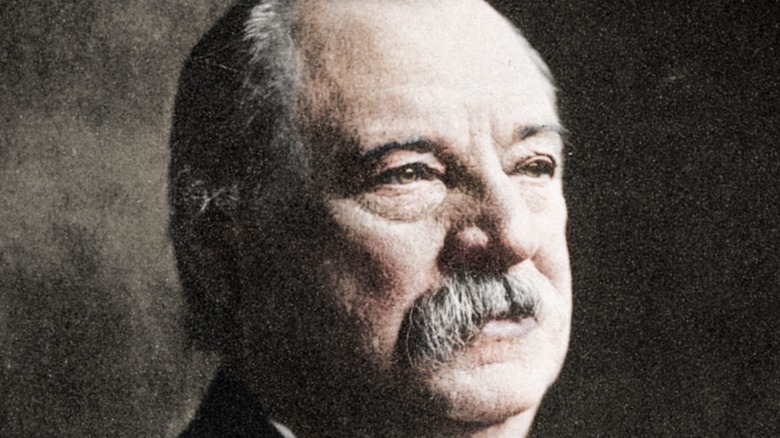
The Truth About President Grover Cleveland's Time As An Executioner
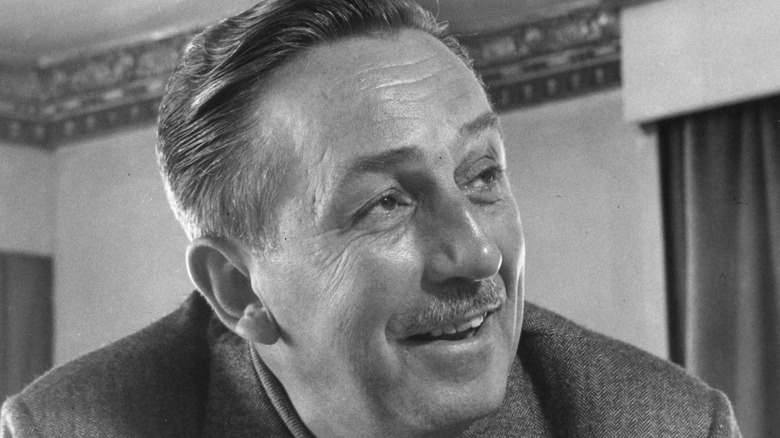
This Was Walt Disney's First Feature Film
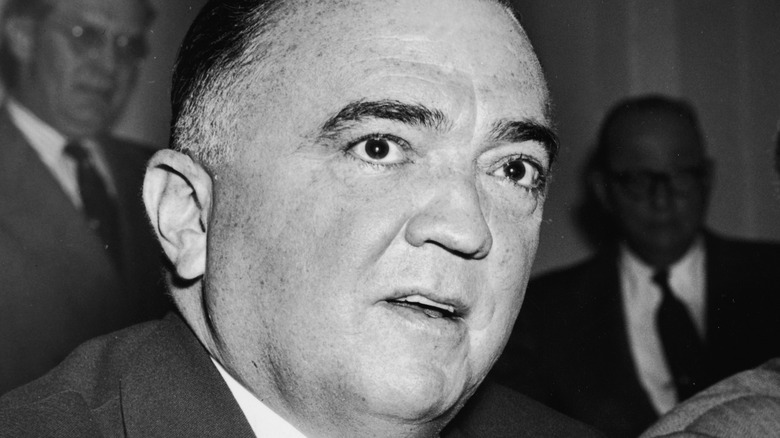
The Truth About Where J. Edgar Hoover Is Buried

Here's How Many UFO Sightings Have Been Reported In The Hudson Valley

The Real Story Behind Rick Springfield's 'Jessie's Girl'
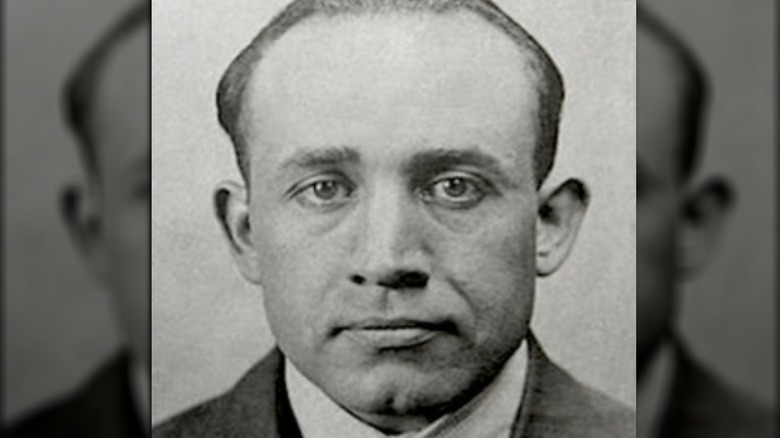
The Surprising Way Serial Killer Earle Nelson Was Caught

Sharon Tate's Onscreen Performances Ranked Worst To Best

The Tragic Death Of Cary Grant
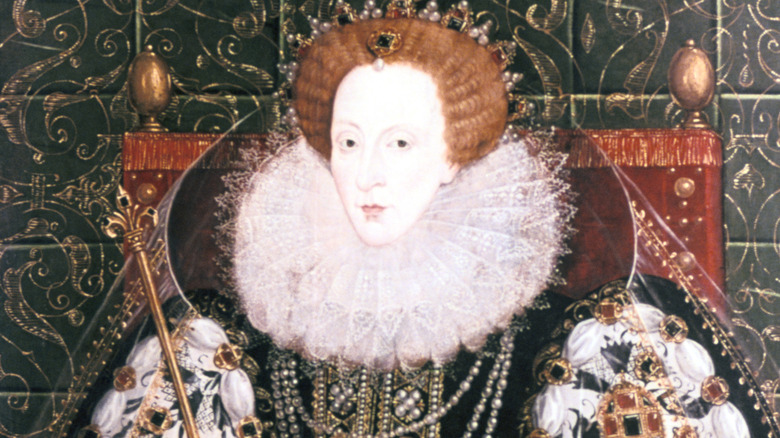
Famous Historical Families That Died Out
